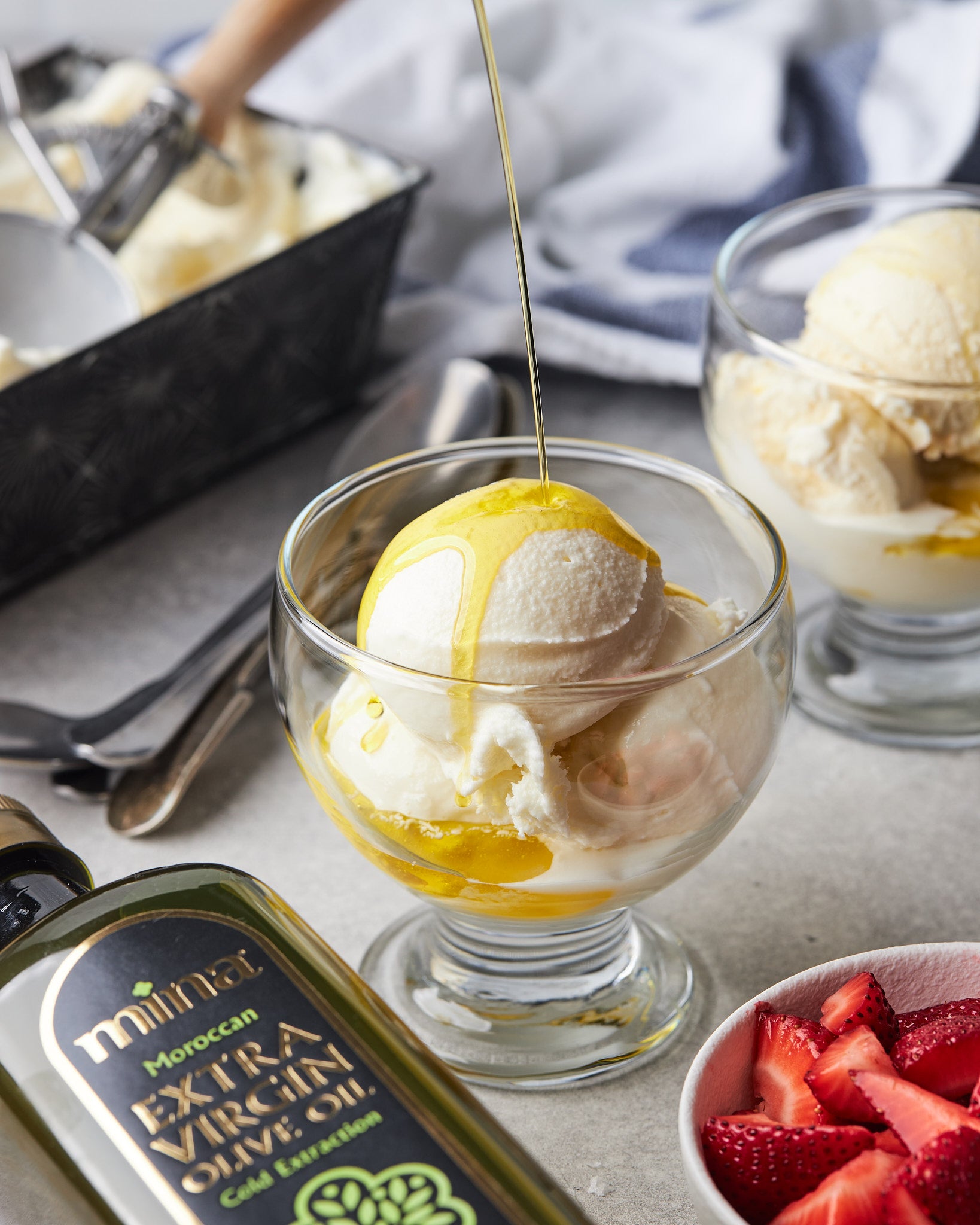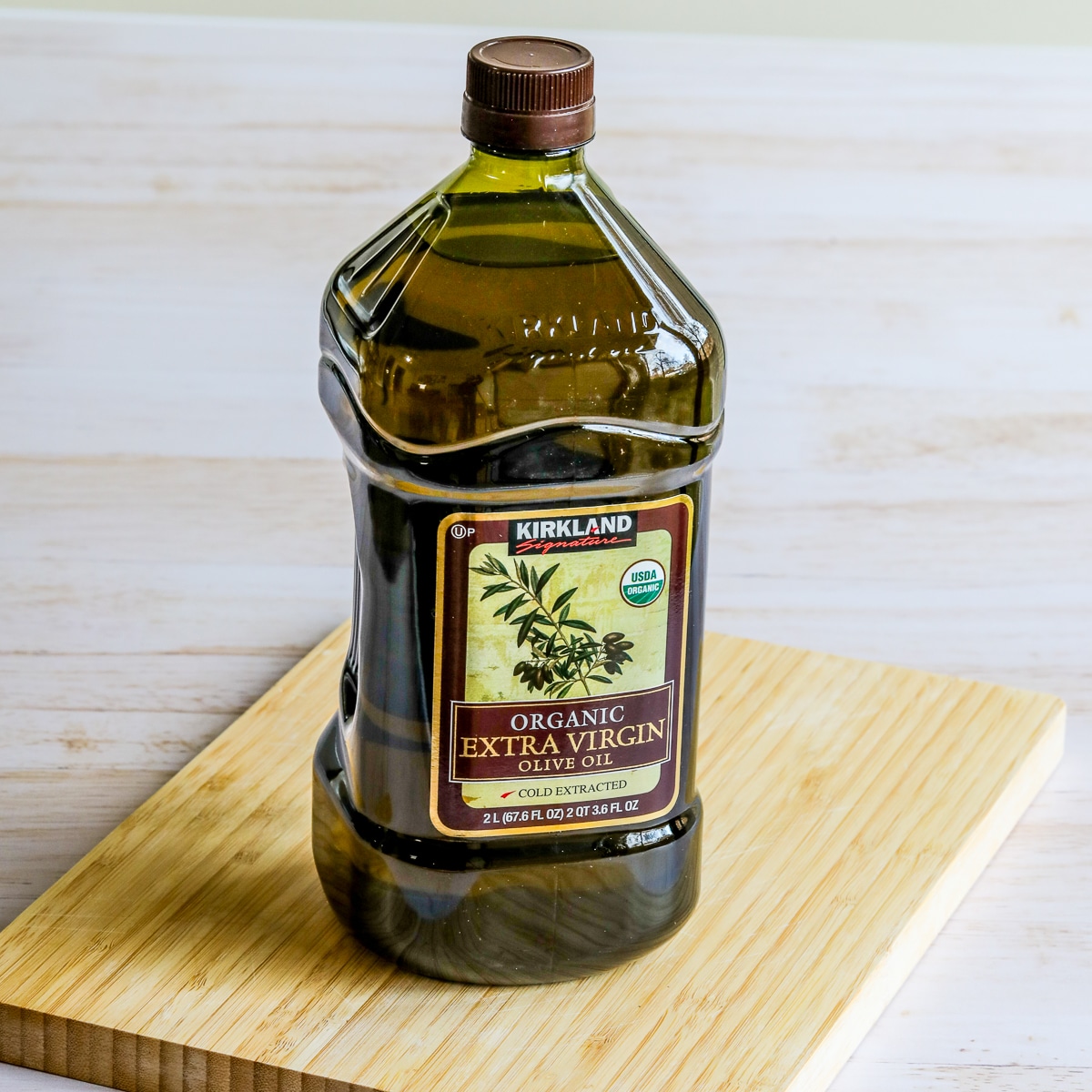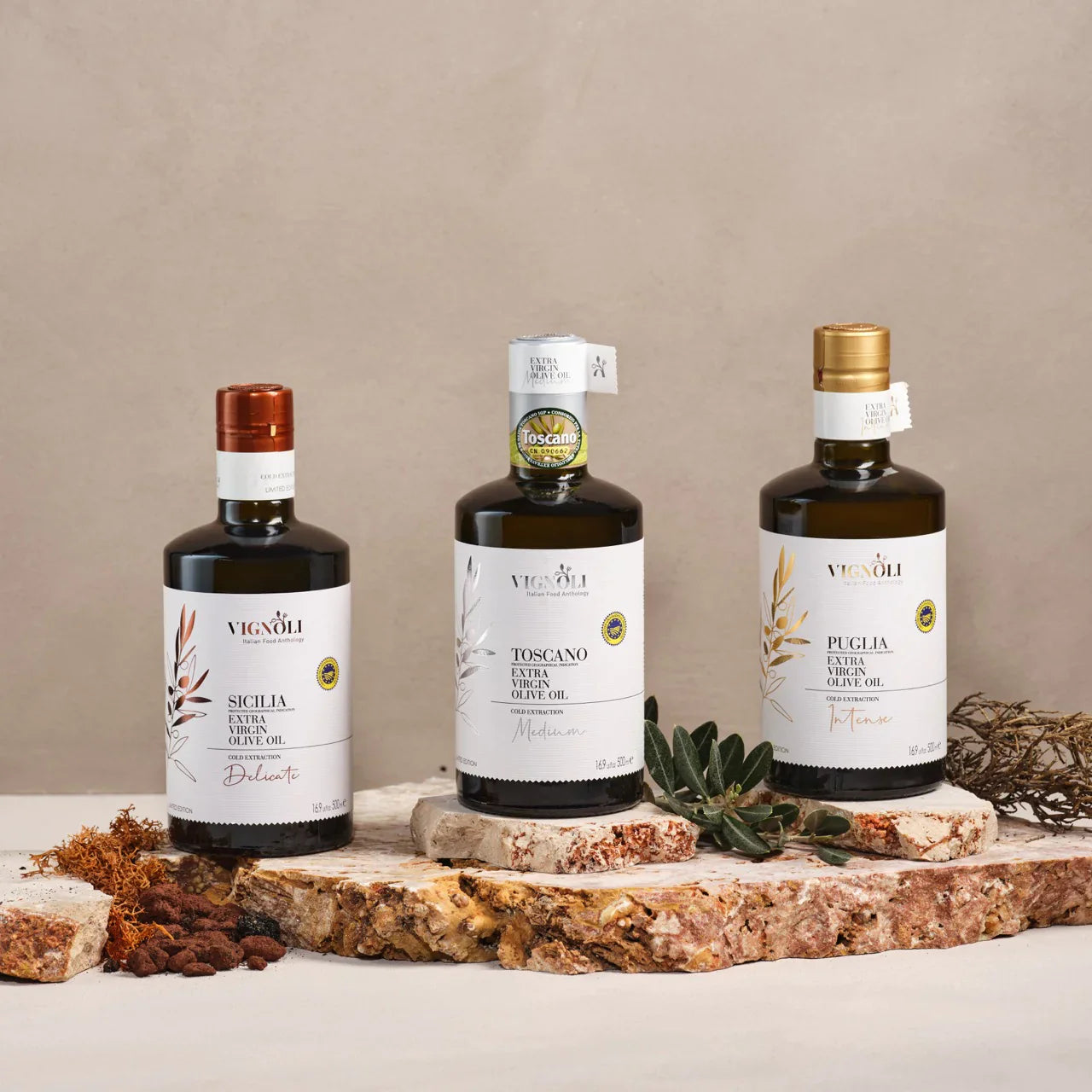The Vital Guide to Understanding Extra Virgin Olive Oil and Its Culinary Conveniences
Extra virgin olive oil stands as a foundation of cooking excellence, distinguished not just by its superior quality but also by its myriad wellness advantages. This oil, removed from the initial pressing of olives, uses low acidity and a complicated taste profile that improves a varied variety of meals. Comprehending the subtleties of its manufacturing and wellness buildings is important for both culinary enthusiasts and health-conscious customers alike. Several stay uninformed of how to successfully incorporate this ingredient right into their day-to-day food preparation practices, prompting a closer examination of its true capacity.
What Is Extra Virgin Olive Oil?
Extra virgin olive oil (EVOO) is a top notch oil stemmed from the initial pushing of olives, identified by its low acidity and abundant flavor profile. This oil is taken into consideration the finest grade of olive oil, meeting strict standards for quality and preference. To certify as extra virgin, the oil must be drawn out through mechanical methods without the use of warm or chemicals, maintaining the all-natural qualities of the olives.
EVOO is commemorated for its complicated aroma, ranging from fruity to peppery, and its distinctive preference that can differ based upon the olive variety and area of production. The wellness benefits of added virgin olive oil are well-documented; it is rich in monounsaturated fats, anti-oxidants, and anti-inflammatory substances, contributing positively to heart health and overall wellness.
In culinary applications, EVOO is versatile, suitable for sprinkling over salads, improving the flavor of prepared dishes, and serving as a base for marinades. Its unique taste account not just elevates dishes yet also plays a critical role in Mediterranean food, where it is an essential ingredient. Understanding EVOO's high qualities can enrich culinary experiences and promote much healthier eating practices.
Just How Extra Virgin Olive Oil Is Made

At the mill, the olives go through a strenuous cleansing process to remove any kind of dust or leaves. They are then squashed right into a paste making use of typical stone mills or modern-day steel mills. This step is vital for releasing the oil from the cells of the fruit. Following this, the paste undergoes malaxation, where it is carefully blended to facilitate the separation of oil from water and solids.
The following phase includes centrifugation, which uses rapid spinning to separate the oil from the remaining pulp and water. The resulting oil is then filtered to enhance quality and stability. Ultimately, additional virgin olive oil is saved in dark glass or stainless-steel containers to shield it from light and oxidation, guaranteeing its remarkable flavor and high quality are preserved until it gets to customers.
Health Perks of Extra Virgin Olive Oil
What makes additional virgin olive oil a staple in healthy diet regimens around the globe? Its abundant structure of monounsaturated fats, primarily oleic acid, adds dramatically to cardio health. Research studies have shown that these healthy and balanced fats can lower inflammation, lower negative cholesterol degrees (LDL), and raise great cholesterol (HDL), hence promoting heart health and wellness.
Furthermore, extra virgin olive oil is a potent resource of antioxidants, including polyphenols and vitamin E (extra virgin olive oil benefits). These substances assist battle oxidative tension and reduce the danger of chronic illness such as cancer cells and diabetes. The anti-inflammatory residential properties of added virgin olive oil additionally improve its wellness benefits, making it an important addition to an anti-inflammatory diet plan
Research has additionally suggested that routine intake of additional virgin olive oil may sustain cognitive function and lower the risk of neurodegenerative illness, such as Alzheimer's. Furthermore, its prospective duty in weight monitoring, go to this website when used in moderation, emphasizes its flexibility as a healthful fat resource.
Culinary Utilizes and Applications
A keystone of Mediterranean food, added virgin olive oil serves a wide variety of culinary applications that boost flavor and boost recipes. Its abundant, nuanced taste account makes it an excellent choice for drizzling over salads, smoked veggies, or roasted meats, conveying deepness and richness.

In addition, it operates as a vital ingredient in dressings, offering a base for vinaigrettes and velvety sauces, while boosting the total preference experience. Extra virgin olive oil can also be employed as an ending up oil, included simply prior to serving to accentuate the recipe's scent and flavor account.

Tips for Picking Quality Olive Oil
Picking high quality olive oil can significantly improve both flavor and wellness advantages in your cooking endeavors. To guarantee you choose the finest item, think about the adhering to ideas.
First, seek the designation "extra virgin" on the tag. This classification shows that the oil is made from the initial cold pushing of olives, maintaining the highest level of flavor and nutrients. Additionally, check for a harvest day; fresher oils are generally better in both taste and health and wellness buildings.
Next, think about the source. Oils from areas known for premium production, such as Italy, Spain, and Greece, typically generate exceptional items. Try to find single-origin oils, as they generally give a more genuine flavor profile compared to blends.
Take a look at the packaging, as well. Quality olive oil ought to be kept in dark glass bottles or tins to protect it from light more info here and oxidation. extra virgin olive oil benefits. Stay clear of clear plastic bottles, as they expose the oil to light, which can deteriorate its top quality
Conclusion
Finally, added virgin olive oil stands as a costs oil, celebrated for its remarkable taste and countless wellness benefits. Its manufacturing process, which includes cold pressing, makes certain the retention of crucial nutrients and anti-oxidants. The diverse culinary applications improve numerous dishes, making it a functional component. Picking high-quality additional virgin olive oil is essential for enhancing both taste and health homes, reinforcing its condition as a staple in healthy and balanced cooking and nutritional practices.
Extra virgin olive oil (EVOO) is a high-quality oil derived from the initial pushing of olives, characterized by its reduced acidity and abundant flavor account.The manufacturing of additional virgin olive oil starts with the mindful harvesting of olives, which are commonly handpicked to stop damages to the fruit. Additional virgin olive oil is kept in dark glass or stainless steel containers to protect it from light and oxidation, ensuring its phenomenal taste and quality are protected until it gets to consumers.
In conclusion, extra virgin olive oil stands as a costs oil, commemorated for its remarkable taste and countless health and wellness advantages. extra virgin olive oil benefits. Selecting top quality extra virgin olive oil is crucial for optimizing both flavor and health and wellness buildings, strengthening its status as a staple in healthy food preparation and nutritional techniques